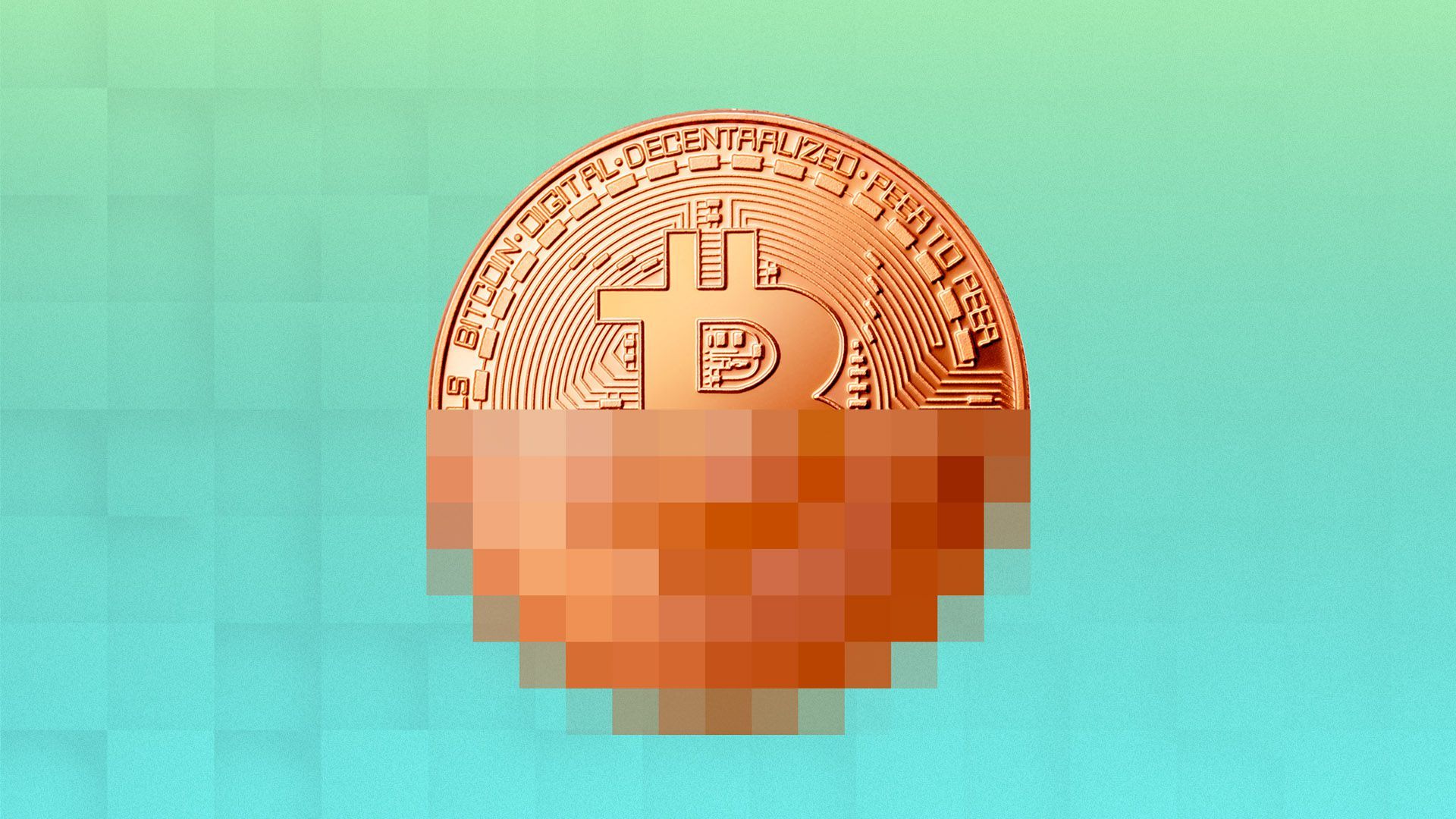| | | | | | | Presented By Northern Trust | | | | Axios Markets | | By Aja Whitaker-Moore ·Jun 15, 2021 | | Good morning! Today's newsletter is 1,293 words, 5 minutes. Situational awareness: The Fed's two-day June meeting kicks off today with all eyes on interest rates and inflation. Axios' business editor Kate Marino will be covering the festivities. Send tips or questions to kate.marino@axios.com. | | | | | | 1 big thing: PwC has a plan |  | | | Illustration: Shoshana Gordon/Axios | | | | A slew of corporations over the last year made promises to help build a more equitable future, pushed to action by sustained protests demanding racial equity. Consumers and investors alike are looking for action to back up rhetoric, writes Axios' Kate Marino. What's new: PwC provided Axios an early look at a new global strategy announced this morning that aims to reimagine business' role in society. A cornerstone of the plan is putting $300 million toward education and racial equity programs. Why it matters: As cultural polarization and political gridlock have become American staples, corporations have increasingly taken more visible stands — and what consumers expect from them has grown. The details: PwC, a professional services firm, committed $125 million to provide 25,000 Black and Hispanic college students with high-demand digital and career readiness training, up-skilling, mentorship and pathways to help start their careers. - The firm plans to ultimately hire 10,000 of those students over the next five years.
For context: PwC's U.S. business now employs around 55,000 people. Meanwhile: PwC is also committing $75 million to support CEO Action, a diversity and inclusion coalition that the firm's U.S. chairman Tim Ryan founded in 2017, and its public policy subset, CEO Action for Racial Equity. The big picture: Business and CEOs have effectively become the fourth branch of government, stepping in to deal with society's problems when government can't — or won't, as Axios chief financial correspondent Felix Salmon wrote earlier this year. - Edelman's 2021 Trust Barometer noted that trust in businesses has grown over the last year, and that business is a more trusted institution than the government or media.
State of play: At PwC, that translates into a decision to revamp the way it works with its clients. - The firm is consolidating its assurance and tax reporting segments into a new group called Trust Solutions. It aims to create a more holistic approach to helping clients build trust with their own customers — on issues related to the environment, diversity and inclusion, data privacy and more.
- It is also launching the PwC Trust Leadership Institute, funded with $100 million, which will teach trust-building philosophies to thousands of business leaders preparing for C-suite and director roles.
The bottom line: "People want to know if companies can be trusted to be good business leaders in every sense of the word. Not just to follow the regulations, but can they be trusted to run their platforms the way society expects them to?" Ryan tells Axios. |     | | | | | | 2. Catch up quick | | Applicants for the federal Restaurant Revitalization Fund who were previously approved for grants are now in limbo after a court struck down a policy that favored underserved groups. (NYT) MicroStrategy filed a shelf registration to sell as much as $1 billion in common shares, and proceeds could be used for purchases of bitcoin. The software maker last week sold a $500 million bond, also to purchase bitcoin. (Bloomberg) Canada's inaugural green bond offering is in the works. It could seek to raise C$5 billion and is working with HSBC and Toronto-Dominion Bank on the sale. (Bloomberg) |     | | | | | | 3. Health care exec pay soars during pandemic |  | | | Illustration: Aïda Amer/Axios | | | | The CEOs of 178 health care companies collectively made $3.2 billion during the coronavirus pandemic, which was 31% more than 2019, according to an Axios analysis of financial filings, writes Axios' Bob Herman. The big picture: Health care executives took home more than ever because a vast majority of their pay still comes in the form of stock. So while the coronavirus ravaged people's lives, the health care system and the broader economy, the soaring stock market immunized executives' pay. By the numbers: The median pay of a health care CEO in 2020 was more than $9 million, up from 2018 and 2019. Thirty CEOs made more than $30 million each. - The figures were calculated by using actual realized gains of stock options and awards, which are in the annual proxy disclosures companies file with the Securities and Exchange Commission.
The highest-paid health care CEO in 2020 was Joe Kiani of Masimo, a large medical device company best known for its products that measure oxygen saturation and other vitals. Kiani earned more than $210 million last year. Drill down further: Two other executives surpassed the $100 million pay mark last year: Leonard Schleifer of Regeneron Pharmaceuticals, which made a COVID-19 treatment, and Paul Kusserow of Amedisys, a home health and hospice company. - The CEOs of the six health insurance conglomerates (Anthem, Centene, Cigna, CVS Health, Humana and UnitedHealth Group) made a combined $236 million in 2020, 45% more than in 2019.
- Due to the pandemic, many executives deferred or received lower bonuses, which are mostly based on financial metrics like revenue and adjusted profitability.
Go deeper |     | | | | | | A message from Northern Trust | | How to navigate possible tax policy changes | | |  | | | | There is much uncertainty and speculation surrounding the ultimate form of tax policy changes announced by the Biden Administration. Gain insight at the intersection of changing tax policy and managing complex wealth from The Northern Trust Institute. Ready for reform? | | | | | | 4. Scenes from the global shipping logjam 🚢 |  | | | Illustration: Sarah Grillo/Axios | | | | Companies are expecting to deal with more supply chain delays as the year progresses, writes Axios' Hope King. Driving the news: For the first time, Home Depot will run its own contracted container ship next month, as it tries to manage logistics more closely. Why it matters: Retailers are already selling inventory faster than they can restock, and shipping demand will further intensify ahead of the holiday season. - Shipping rates are reaching record highs, with no signs of a pullback.
- Maersk, the biggest container-shipping company in the world, warned customers last week to expect an average waiting time of 16-plus days across ports in southern China.
The backstory: Businesses were caught off guard by the spike in consumer demand for products during lockdowns, and are still playing catch up with record order backlogs. Meanwhile, as the economy opens up more broadly, there's even more demand for goods. - A flare-up in COVID cases in southern China has led to new delays in ports in that area, which now represent the biggest backlog in at least two years.
- Elsewhere in the supply chain, warehouse and transportation capacity remain tight.
What to watch: The U.S. trade deficit reached a record $74.4 billion in March, a sign of the economy's recovery compared to the rest of the world. - The U.S. trade deficit with China grew nearly 12%, to $27.7 billion, compared to February.
What they're saying: "[C]learly the trade balance is in favor of China, so that we are full from China and maybe two-thirds full from the U.S.," Maersk CEO Søren Skou told "Axios on HBO." - "For decades, we have been designing supply chains for cost efficiency and lowering inventories," he added. "And now, we all realize we need to have a certain amount of agility and resilience in global supply chains."
- "The biggest thing we saw in the pandemic, was that the fact that we had very little inventory very quickly became a problem."
|     | | | | | | 5. Bitcoin's code upgrade is about privacy |  | | | Illustration: Sarah Grillo/Axios | | | | Bitcoin's most significant code improvement in years won a key stamp of approval this weekend, reports CoinDesk's Christie Harkin. Why it matters: Over three years in the making, Taproot represents the ability for bitcoin to one day do more than be a store of value: think more nimble smart contracts (similar to those on Ethereum) and better usability. The intrigue: The thing that stands out to industry observers is an added level of obfuscation that will make the protocol more private. In short, "mixed" bitcoin transactions will look the same as regular transactions on the blockchain. - What's bitcoin mixing? Bitcoin is an open ledger that is fairly easy to track. Bitcoin mixers bundle transactions in such a way that most sleuths are thrown off the trail of where an individual transaction is being sent. Depending on your view of privacy, mixers are favored by the prudent or the criminal.
Between the lines: That's why the new Taproot upgrade slices two ways. - It's great if you think digital cash should function like actual cash: Greenbacks don't leave much of a trail for digital surveillance.
- It's potentially worrisome if you view the pseudonymous traceability of bitcoin as an asset: Colonial Pipeline, anyone?
What to watch: Either way, it will be months until Taproot is alive in the wild. The upgrade will kick in when bitcoin reaches a specified "block height" in November, giving miners and anyone operating a node — from Coinbase to your next-door neighbor — ample opportunity to update their software. - After that, developers will pick up the baton to integrate Taproot's new features into products bitcoiners will actually use.
The bottom line: Is this a new bitcoin? No. - Despite some new functionality (and potentially bitcoin-native decentralized finance, or DeFi) the original cryptocurrency will likely continue to do what it does best: Be an internet-native store of value that exists outside the purview of pesky central bankers.
|     | | | | | | A message from Northern Trust | | State of the state: A relocation checklist | | |  | | | | A move across state lines requires careful planning to avoid unintended tax consequences. Review Northern Trust's checklist before relocating to a different state to understand and prepare for the financial implications of your move. Learn more. | | | | Thank you for reading! 🧢Also a reminder: We launched a referral program! If you refer new subscribers to Axios Markets or one of our other newsletters, you can get free Axios swag! Click here to get started. |  | | The tool and templates you need for more engaging team updates. | | | | | | Axios thanks our partners for supporting our newsletters. If you're interested in advertising, learn more here.
Sponsorship has no influence on editorial content. Axios, 3100 Clarendon Blvd, Suite 1300, Arlington VA 22201 | | | You received this email because you signed up for newsletters from Axios.
Change your preferences or unsubscribe here. | | | Was this email forwarded to you?
Sign up now to get Axios in your inbox. | | | | Follow Axios on social media:    | | | | | |









No comments:
Post a Comment